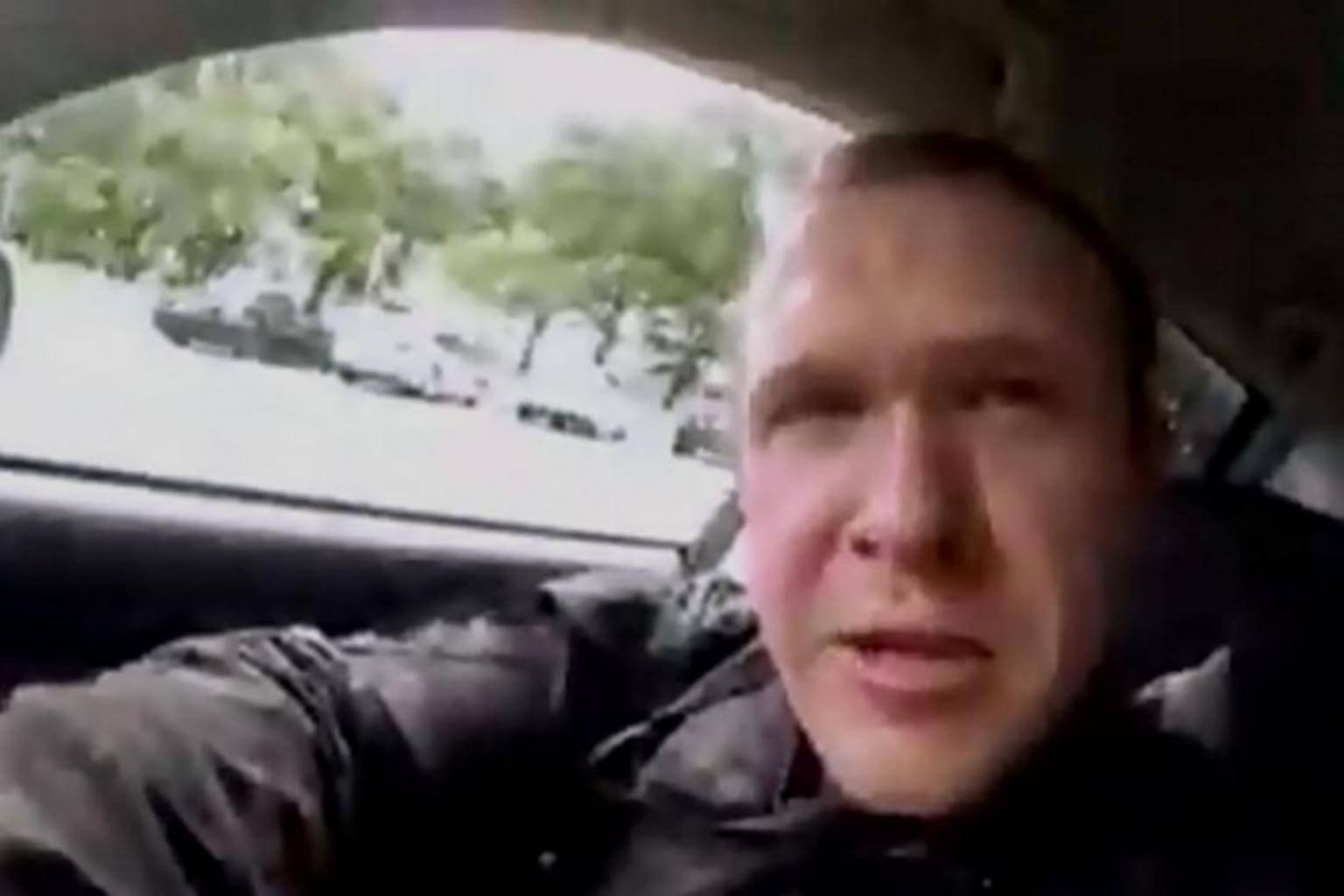Shock, disgust and disbelief in Christchurch terror attack suspect's hometown
Sign up now: Get insights on Asia's fast-moving developments

As Brenton Tarrant was charged in a Christchurch courtroom, many in his hometown of Grafton, Australia were stupefied.
PHOTO: SCREENGRAB FROM INTERNET
GRAFTON, AUSTRALIA (NYTIMES) - Grafton is a peaceful and quiet eastern Australian town along the Clarence River, surrounded by farms and filled with families and retirees, a place where people leave their homes unlocked and everyone knows someone.
The biggest event is the annual Jacaranda Festival, named for the blossoms of its indigo-flowered trees. The biggest construction projects are the new jail and the new bridge.
So it was a stunner on Saturday (March 16) for Grafton's 18,000 people when they were involuntarily vaulted into the centre of notoriety, as the world learnt that one of their own was the suspect in New Zealand's worst mass killing.
Members of the international news media poured into Grafton, 610km north of Sydney, rushing to find anyone who knew or remembered the suspect, Brenton Harrison Tarrant, 28, a former bodybuilder accused of slaughtering 50 people at two mosques in Christchurch, broadcasting the attacks live on Facebook and disseminating a racist online screed.
As Tarrant was charged in a Christchurch courtroom, many Grafton townspeople were stupefied.
"The town has gone into silence," said Mr Ola Williamson, the owner of a restaurant in Grafton. People had lined up to buy newspapers that morning looking at one another with shock.
"I hope we don't get tarred with the same brush," he said.
Some residents said they felt sorrow and horror for Christchurch's Muslim community, along with confusion.
"I don't understand why someone from Grafton would be so racially motivated to do such a thing," said resident Willow Walker. "That's what shocks me the most."
As details about Tarrant's life emerged, residents of the town, unaccustomed to such intense attention from reporters walking their streets, also expressed anger and worry about the reputation of Grafton.
"All the reporters are stating that this is a bad town - we breed terrorists," said Ms Trudy Schultz, 52, a resident. "We don't agree with that at all."
Many streets in the town centre were nearly deserted, broken up by occasional groups of teenagers biking and families walking.
Tarrant grew up on a grassy, suburban street. A woman who answered the door of a home where he was believed to have been raised declined to comment.
Neighbours who remembered the family said that he had played in the street as a child and that the family had moved away about eight years ago.
In the online manifesto Tarrant distributed before the attacks, he described himself as "just a ordinary White man" from "a working class, low income family", adding: "I had a regular childhood, without any great issues. I had little interest in education during my schooling, barely achieving a passing grade."
According to the 2010 obituary for his father, Rodney, in the local newspaper The Daily Examiner, Tarrant's parents divorced early in his childhood. Former classmates at Grafton High School said that he had lived with his father, a trash collector who competed in triathlon events, and that his mother had been a schoolteacher.
They remembered him as a disruptive, cocky student.
"He was sort of like your class clown," said Ms Kara Hickson, 28, who graduated in the same year as Tarrant. "Always trying to make people laugh and always being silly."
But they also described him as a teenager who was bullied, even by friends, and at one point was a heavy-metal fan.
After they graduated in 2008, former classmates said, he turned his focus to personal training. "He lost a heap of weight," Ms Hickson said.
And after the death of his father, he used profits from cryptocurrency investments to travel the world, they said. "We never really heard from him after travelling," Ms Hickson said.
"He never showed any extremes or extremist views or any crazy behaviour," Ms Tracey Gray, a former employer, said in an interview with the broadcaster 9 News. "It was my understanding he was open to see the world, to see as many places as possible. He just wanted to experience different experiences," she said of his decision to leave town.
By Saturday afternoon, residents of the street where Tarrant grew up said, several reporters had already knocked on their doors. Cameramen waited outside his former home and the Big River Squash and Fitness Centre, a gym where he had worked as a personal trainer.
"It's a shock for the community to get the global attention like this for something that you don't want the attention for," said Mr Bill North, the editor of The Daily Examiner.
Some townspeople, protective of the remaining Tarrants in the area, have harboured animosity toward the news media for what they see as infringing upon the family's privacy, he said.
"At the end of the day, we have to live here," Mr North said.
The town's demography is largely white, with a prominent Indigenous community but few immigrants. Some residents said that although life in Grafton was pleasant, it was not without moments of tension.
"There is still a lot of racism around the place. It's usually sort of hidden a little bit," said Ms Teena Colgrave, though she added that it was the same all over Australia.
Still, a vigil was held in a Grafton church for the victims of the shooting.
"It's just one of those things, you just don't expect someone from here," said Mr Jeff Smith, the owner of an ice cream store in the town's centre.
"It's frustrating when some of the media says this is Grafton's own - we don't want anything to do with that sort of mentality."


